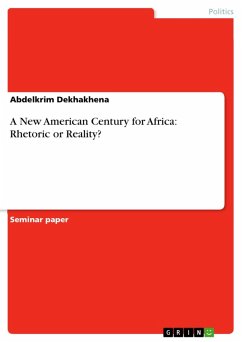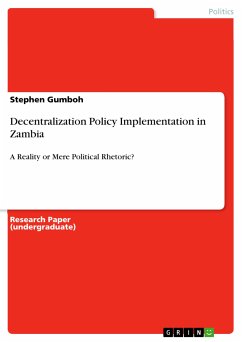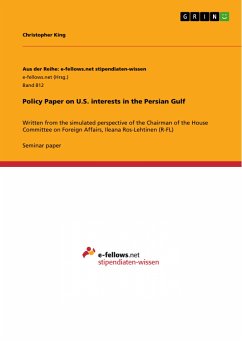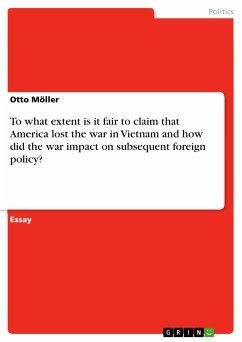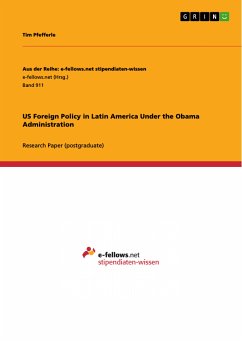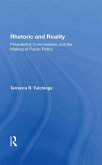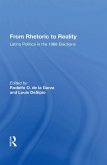Seminar paper from the year 2013 in the subject Politics - Region: Africa, grade: A, Université 8 Mai 1945 (Université 8 Mai 1945, Guelma), course: American civilization, language: English, abstract: The twenty first century announced more promising for the black continent as the US turned massively and determinedly to Africa. Despite previous attempts by former administrations, it was the Bush administration which showed more interest in an economically and politically distressed area for so long. In the light of the international competition over the continent's resources, the United States possesses clear and compelling national interests in Africa. There are vital security, economic, and humanitarian interests, including reliable long-term access to energy, shared largely by the African people and the international community. Yet, despite the rhetoric, did the Bush Administration really work to bring about a fairer and more just Africa? One of the central questions which need to be asked is to what extent did President Bush's policy to help the African nations solidify the overall US policy? Or was his project implementation influenced largely by narrow American realpolitik perspectives thus missing the opportunity to lay the foundation for a well established Wilsonian idealism? Although George W. Bush's administration claimed to have made major new contributions to public health, promoting development, fostering democracy and peace in Sub-Saharan Africa : aid has increased in several areas and a major AIDS initiative launched, many scholars argued that foreign aid is losing its focus on development as political priorities come to the fore. Increasingly military approaches to fighting the "Global War on Terror" in Africa and securing energy imports carries serious risks for the region. This paper will first examine the enunciated objectives and rational for the Bush's policy project. Then, this will be followed by an assessment of the effect of these measures on the development of the continent and to which extent the rhetoric matches with reality.
Dieser Download kann aus rechtlichen Gründen nur mit Rechnungsadresse in A, B, BG, CY, CZ, D, DK, EW, E, FIN, F, GR, HR, H, IRL, I, LT, L, LR, M, NL, PL, P, R, S, SLO, SK ausgeliefert werden.

